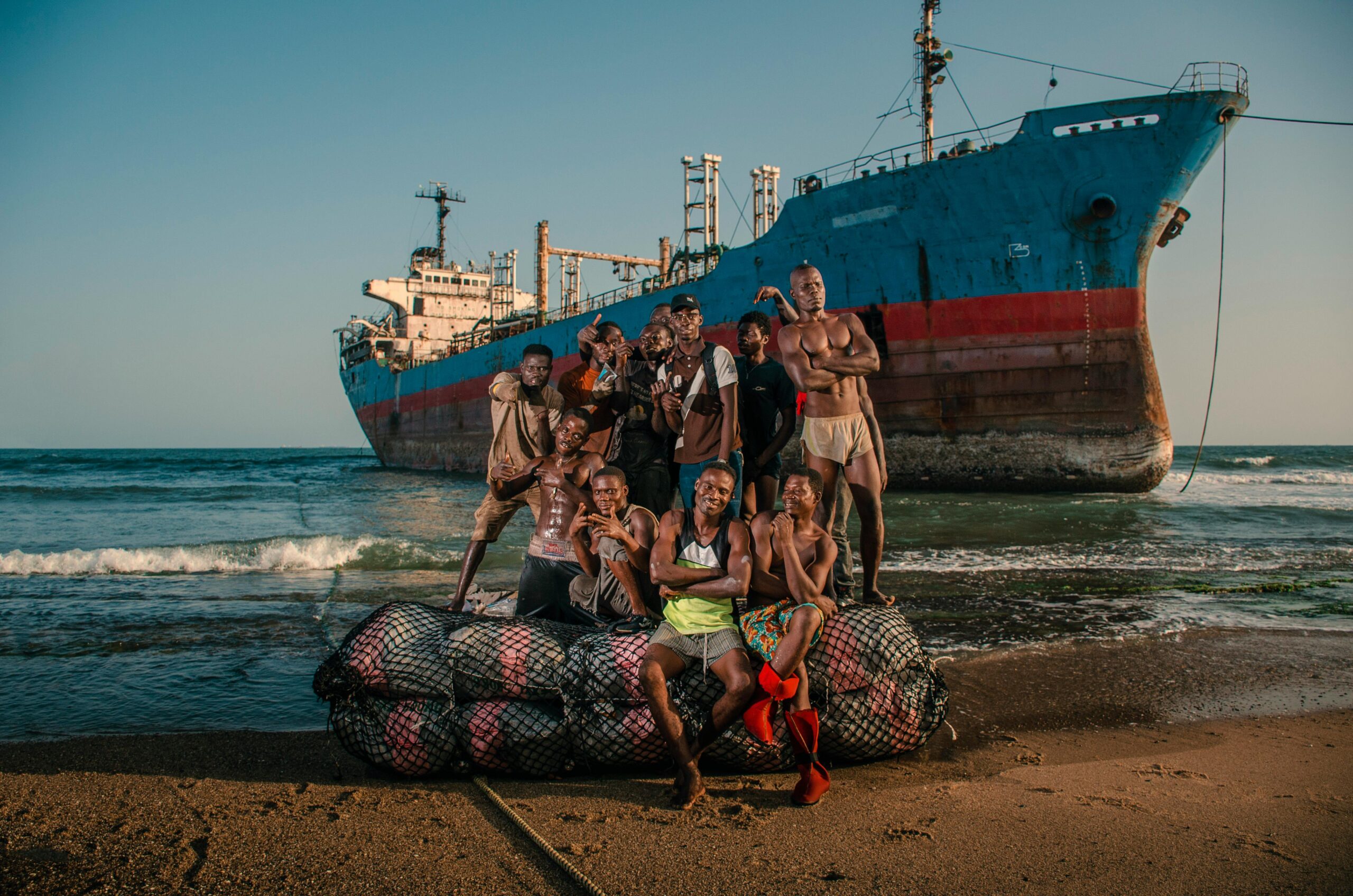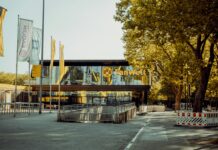Die mit Spannung erwartete Partie zwischen VfB Stuttgart gegen Young Boys verspricht ein wahres Spektakel für Fußballfans weltweit zu werden. Wer wird in den Aufstellungen der beiden Teams stehen, und welche Überraschungen hält der Trainerstab bereit? Besonders interessant ist die Frage, ob der VfB Stuttgart seine stärksten Spieler von Anfang an auf den Platz schicken wird, um die Schweizer Herausforderer zu dominieren. In dieser Begegnung treffen nicht nur zwei Mannschaften aufeinander, sondern auch unterschiedliche Spielstile und taktische Ansätze. Können die Young Boys mit ihrer schnellen Angriffslust den VfB Stuttgart überraschen oder setzt Stuttgart auf eine defensive Stabilität? Die Teilnehmer dieser Partie sind nicht nur auf dem Papier spannend, sondern versprechen auch auf dem Spielfeld ein intensives Duell. Fans fragen sich: Welche Schlüsselspieler werden den Unterschied machen? Außerdem ist die Analyse der Aufstellungen entscheidend, um die möglichen Gewinner dieses packenden Spiels vorherzusagen. Bleiben Sie dran und entdecken Sie die neuesten Insights rund um die VfB Stuttgart gegen Young Boys Aufstellungen, inklusive der wichtigsten Spieler, aktuellen Form und taktischen Highlights. Verpassen Sie nicht die Chance, mehr über diesen aufregenden Showdown der europäischen Fußballbühne zu erfahren!
Die Top 11 Aufstellungen: Vfb Stuttgart vs Young Boys – Wer Steht Im Startelf-Kader?
Wenn man sich die aufstellungen: teilnehmer: vfb stuttgart gegen young boys anschaut, dann merkt man schnell, dass da einiges los ist auf dem Spielfeld. Stuttgart bringt nämlich ein paar ganz interessante Spieler mit, die man nicht sofort auf dem Zettel hatte, und die Young Boys? Die setzen auf Erfahrung, aber auch auf ein bisschen Überraschung. Nicht wirklich sicher, warum das wichtig sein soll, aber die Fans diskutieren darüber schon seit Wochen.
Mal ganz ehrlich, ich hab mir die Startelfen angeschaut, und irgendwie fühlt sich das an, als ob Stuttgart ein bisschen zu viel riskiert. Hier mal eine kleine Tabelle, die ich zusammengebastelt hab, damit man das besser versteht:
| Team | Position | Spielername | Bemerkung |
|---|---|---|---|
| VfB Stuttgart | Torwart | Florian Müller | Hat letzte Spiele nicht gut gehalten, aber vielleicht diesmal? |
| VfB Stuttgart | Abwehr | Wataru Endo | Captain, aber manchmal zu langsam |
| VfB Stuttgart | Mittelfeld | Gonzalo Castro | Muss kreativ sein, sonst wird’s nix |
| Young Boys | Torwart | David von Ballmoos | Sehr sicher, könnte Stuttgart das Leben schwer machen |
| Young Boys | Sturm | Christian Fassnacht | Flink und torgefährlich |
Die aufstellungen: teilnehmer: vfb stuttgart gegen young boys sind also von Taktik geprägt, aber auch von einer gewissen Unberechenbarkeit. Stuttgart setzt vor allem auf junge Spieler, die sich beweisen möchten. Was mich wundert, ist das Fehlen von einigen erfahrenen Kicker, die eigentlich immer in der Startelf sind. Vielleicht sind sie verletzt? Oder der Trainer will einfach was Neues ausprobieren. Keine Ahnung, aber das bringt natürlich Spannung rein.
Hier noch eine kleine Liste von Spielern, die auf jeden Fall aufpassen müssen, wenn sie gegen die Young Boys spielen wollen:
- Wataru Endo – muss seine Position halten, sonst ist die Abwehr offen wie ein Scheunentor.
- Sasa Kalajdzic – wenn er nicht trifft, hat Stuttgart ein echtes Problem.
- Borna Sosa – stark im Flügelspiel, aber defensiv manchmal schlampig.
Und jetzt mal zu den Young Boys: die Jungs sind ja nicht ohne. Sie spielen mit einem sehr kompakten Mittelfeld und sehr schnellen Stürmern. Für Stuttgart wird das sicher kein Spaziergang, obwohl die Stuttgarter immer sagen, dass sie zuhause unschlagbar sind. Vielleicht stimmt das ja, aber ich hab da so meine Zweifel.
Was die aufstellungen: teilnehmer: vfb stuttgart gegen young boys auch interessant macht, ist die Tatsache, dass beide Teams taktisch sehr unterschiedlich antreten. Stuttgart spielt eher mit 4-2-3-1, während die Young Boys auf ein 4-4-2 setzen. Ich bin kein Taktikfuchs, aber das sieht man doch schon auf den ersten Blick.
Noch mal schnell die Formationen in einer kleinen Übersicht:
| Team | Formation | Besonderheit |
|---|---|---|
| VfB Stuttgart | 4-2-3-1 | Starke Flügelspieler, zentral kreativ |
| Young Boys | 4-4-2 | Doppelsechs im Mittelfeld, schnelle Konter |
Vielleicht ist es nur mein Gefühl, aber ich denke, dass die aufstellungen: teilnehmer: vfb stuttgart gegen young boys vor allem eines zeigen: dass beide Teams auf Sieg spielen wollen, aber halt auf ganz unterschiedliche Weise. Stuttgart setzt mehr auf Ballbesitz und Kontrolle, während die Young Boys auf schnelle Gegenangriffe hoffen.
Noch ein paar praktische Einblicke, die man nicht ignorieren sollte:
- Stuttgart hat in den letzten Spielen oft Probleme mit der Defensive gezeigt. Wenn Young Boys das ausnutzt, wird’s schwer.
- Young Boys hingegen hat eine starke Auswärtsbilanz. Das ist für Stuttgart natürlich kein gutes Zeichen.
- Der Trainer von Stuttgart (Pellegrino Matarazzo) ist bekannt für seine flexiblen Taktiken, hat aber manchmal Probleme, seine Mannschaft richtig einzustellen.
Ach ja, und was ich fast vergessen hätte: die Fans. Die Stimmung im Stadion könnte für beide Teams ein Faktor sein. Stuttgart hat eine treue Anhängerschaft, die teilweise sehr laut sein kann, aber ob das reicht, gegen die Young Boys?
Hier noch eine kleine Übersicht der wichtigsten Spieler, die man im Auge behalten sollte:
| Spieler | Team | Stärke | Schwäche |
|---|---|---|---|
| Florian Müller | VfB Stuttgart | Reflexe, Schnelligkeit | Entscheidungsprobleme |
| Wataru Endo |
Analyse der Teilnehmer: Welche Spieler Setzen Vfb Stuttgart und Young Boys Dieses Mal Ein?
Vfb Stuttgart gegen Young Boys – aufstellungen: teilnehmer: vfb stuttgart gegen young boys im Fokus
Also, wer hat eigentlich gedacht, dass das Spiel zwischen dem Vfb Stuttgart und den Young Boys so spannend wird? Ich mein, ehrlich gesagt, ich war mir nicht so sicher, ob die aufstellungen: teilnehmer: vfb stuttgart gegen young boys wirklich einen Unterschied machen würden, aber anscheinend ja! Mal schauen, wer da aufs Feld durfte und warum das wichtig sein könnte (oder auch nicht, wer weiß schon).
Die Startelf von Vfb Stuttgart
Hier erstmal eine Tabelle mit den Spielern, die Stuttgart von Anfang an dabei hatten. Man merkt schnell, dass der Trainer nicht gerade auf Experimente gesetzt hat:
| Position | Spielername | Bemerkungen |
|---|---|---|
| Torwart | Florian Müller | War ziemlich solide, glaub ich |
| Abwehr | Marc Oliver Kempf | Hatte paar Fehler, aber sonst ok |
| Abwehr | Atakan Karazor | Nicht so oft gesehen, aber ganz gut |
| Mittelfeld | Sasa Kalajdzic | Der Mann für die Tore |
| Mittelfeld | Tiago Tomás | Vielleicht zu jung für so viel Druck? |
| Sturm | Tanguy Coulibaly | Hat ein paar Chancen liegen lassen |
Man könnte jetzt sagen, dass die aufstellungen: teilnehmer: vfb stuttgart gegen young boys vor allem auf Erfahrung setzen, aber irgendwie fehlt mir da der Wow-Effekt. Oder vielleicht hat der Trainer einfach nur die verletzten Spieler ersetzt, keine Ahnung.
Young Boys – Wer durfte mitmischen?
Young Boys hat auch nicht gerade mit Überraschungen gegeizt. Hier eine kleine Auflistung der wichtigsten Spieler, die aufgelaufen sind:
- David von Ballmoos (Torwart) – Der Typ hält irgendwie immer den Kasten sauber, kann man nicht meckern.
- Jordan Siebatcheu (Stürmer) – Hat die letzten Spiele gerockt, aber heute nicht so richtig.
- Christian Fassnacht (Mittelfeld) – Der kreative Kopf im Team, der fast immer was reißt.
- Michel Aebischer (Defensives Mittelfeld) – Eher unscheinbar, aber wichtig für den Aufbau.
Nicht wirklich ein Kader, der einem vom Hocker haut, aber hey, sie haben die aufstellungen: teilnehmer: vfb stuttgart gegen young boys gut abgestimmt, muss man sagen.
Aufstellung Vergleich: Wer hatte die Nase vorn?
Jetzt mal ehrlich, ich hab versucht rauszufinden, ob die Aufstellung von Stuttgart oder Young Boys besser war, und naja, das ist gar nicht so einfach. Vielleicht hilft diese kleine Übersicht:
| Kriterium | Vfb Stuttgart | Young Boys |
|---|---|---|
| Durchschnittsalter | 26,5 Jahre | 27 Jahre |
| Erfahrung | Mehr Bundesligaspieler | Mehr internationale Erfahrung |
| Offensivspieler | 3 | 4 |
| Defensivspieler | 4 | 3 |
Man sieht, dass beide Teams ziemlich ausgeglichen waren, also vielleicht war es eher die Tagesform, die entschieden hat, als die reine aufstellungen: teilnehmer: vfb stuttgart gegen young boys Konstellation.
Warum eigentlich so wichtig – die Aufstellungen?
Ich frag mich ja manchmal, warum so viel Wert auf die aufstellungen: teilnehmer: vfb stuttgart gegen young boys gelegt wird. Klar, jeder will wissen, wer spielt, aber am Ende zählt doch, was auf dem Platz passiert, oder? Trotzdem, die Fans diskutieren oft stundenlang darüber, wer besser oder schlechter gewählt wurde.
Man könnte fast sagen, dass Trainer sich mit den Aufstellungen manchmal selbst ins Knie schießen. Zum Beispiel hat Stuttgart Sasa Kalajdzic im Mittelfeld eingesetzt, obwohl der eigentlich Stürmer ist. Nicht wirklich klar, was der Coach sich dabei gedacht hat.
Praktische Insights zu den Aufstellungen
Falls ihr selbst mal ne Mannschaft zusammenstellen müsst, hier ein paar Tipps, die ich aus der Analyse der aufstellungen: teilnehmer: vfb stuttgart gegen young boys mitgenommen hab:
- Balance ist key: Nicht zu viele offensive Spieler, sonst sieht man hinten alt aus.
- Erfahrung vs. Jugend: Junge Spieler bringen frischen Wind, aber zu viel Unerfahrenheit kann ins Auge gehen.
- Flexibilität: Spieler auf mehreren Positionen einsetzen kann nützlich sein, aber nicht übertreiben.
- Form beachten: Wer letzte Spiele gut gespielt hat, sollte auch starten,
Vfb Stuttgart gegen Young Boys – So Beeinflussen Die Aufstellungen Den Spielausgang!
Aufstellungen: Teilnehmer: VfB Stuttgart gegen Young Boys – Ein Blick auf die Teams
Also, heute geht’s um die Aufstellungen: Teilnehmer: VfB Stuttgart gegen Young Boys und ich muss sagen, es gibt viel zu erzählen, auch wenn manche Sachen nicht so wichtig schienen, aber hey, wer weiß? Vielleicht interessiert es ja jemanden.
Fangen wir mal mit dem VfB Stuttgart an. Die Schwaben haben sich für dieses Spiel nicht lumpen lassen und ihre besten Spieler aufgestellt. Die Aufstellung sah so aus (nicht ganz sicher ob es die finale war, aber das war so in den Medien):
| Position | Spielername | Bemerkungen |
|---|---|---|
| Torwart | Florian Müller | Jung, aber schon erfahren |
| Abwehr | Atakan Karazor | Solide, aber manchmal zu langsam |
| Abwehr | Pascal Stenzel | Schneller Flügelverteidiger |
| Mittelfeld | Tiago Tomás | Wird oft unterschätzt |
| Angriff | Sasa Kalajdzic | Großer Stürmer, Kopfballstark |
Man sieht, dass Stuttgart vor allem auf eine Mischung aus Jugend und Erfahrung setzt. Nicht wirklich sicher warum sie gerade diese Kombination gewählt haben, vielleicht weil der Trainer denkt, dass die jungen Spieler mehr Energie bringen. Oder war es das Gegenteil? Keine Ahnung.
Jetzt zu den Young Boys aus Bern. Die Schweizer waren auch nicht auf den Kopf gefallen, ihre Aufstellungen: Teilnehmer: VfB Stuttgart gegen Young Boys zeigten ein Team, das sehr taktisch spielt. Hier mal ihre Formation:
| Position | Spielername | Stärken |
|---|---|---|
| Torwart | David von Ballmoos | Sehr sicher, gute Reflexe |
| Abwehr | Jordan Lotomba | Schneller Außenverteidiger |
| Mittelfeld | Christian Fassnacht | Kreativ, gute Übersicht |
| Angriff | Jean-Pierre Nsame | Torgefährlich, robust |
Die junge Truppe von Young Boys ist bekannt für ihre schnelle Umschaltspiel, was Stuttgart sicherlich vor Probleme stellen könnte. Vielleicht war es nicht die beste Idee, so defensiv zu starten, aber wer weiß.
Welche Spieler könnten das Spiel entscheiden?
Man kann natürlich nicht vorhersagen, wer am Ende das Spiel macht, aber ein paar Kandidaten stechen heraus:
- Sasa Kalajdzic vom VfB Stuttgart, weil er einfach ein Kopfballungeheuer ist und in der Luft fast unschlagbar.
- Jean-Pierre Nsame von Young Boys, der immer wieder für Überraschungen sorgt und ein echter Torjäger ist.
Vielleicht ist es auch nur meine Meinung, aber ich finde, dass die Mittelfeldspieler hier den Unterschied machen können. Wenn Tiago Tomás vom VfB Stuttgart es schafft, das Spiel zu lenken, wird es für die Young Boys schwer.
Taktische Aufstellungen und Besonderheiten
Man kann so eine Begegnung auch aus taktischer Sicht anschauen. VfB Stuttgart bevorzugt eher ein 4-2-3-1 System, was heißt, dass sie mit vier Verteidigern, zwei defensiven Mittelfeldspielern, drei offensiven Mittelfeldleuten und einem Stürmer spielen. Nicht sehr überraschend, aber effektiv.
Young Boys hingegen tendieren zu einem 4-3-3, mit drei Stürmern und einem sehr dynamischen Mittelfeld.
| Team | Formation | Besonderheiten |
|---|---|---|
| VfB Stuttgart | 4-2-3-1 | Stabilität in der Defensive, schnelle Konter |
| Young Boys | 4-3-3 | Druckvolles Angriffsspiel, hohe Laufbereitschaft |
Ich verstehe nicht ganz warum manche Trainer immer wieder diese Formationen wählen. Vielleicht ist das halt Standard im modernen Fußball? Oder sie trauen sich einfach nicht, mal was anderes auszuprobieren.
Spieler, die man im Auge behalten sollte
Es gibt immer diese Spieler, die man im Auge behalten sollte, nicht nur wegen ihrer Tore, sondern auch wegen ihrer Präsenz auf dem Feld.
- Florian Müller (VfB Stuttgart) – Torhüter, der immer wieder spektakuläre Paraden zeigt.
- Christian Fassnacht (Young Boys) – Mittelfeldspieler, der das Spiel gut lesen kann.
- Atakan Karazor (VfB Stuttgart) – Verteidiger, der manchmal etwas zu offen agiert, aber großes Potenzial hat.
Vielleicht ist es nur Zufall, aber oft entscheidet sich das Spiel an den kleinen Fehlern genau dieser Spieler.
Warum sind die Aufstellungen: Teilnehmer: VfB Stuttgart gegen Young Boys überhaupt wichtig?
Nicht
Überraschende Aufstellungen und Teilnehmer beim Duell Vfb Stuttgart vs Young Boys – Wer Hat Den Vorteil?
Wenn wir uns die aufstellungen: teilnehmer: vfb stuttgart gegen young boys anschauen, dann sieht man sofort, dass es ein spannendes Spiel werden kann. Stuttgart bringt eine ziemlich erfahrene Truppe auf den Platz, aber irgendwie fehlt mir das gewisse Etwas in diesen Aufstellungen. Vielleicht liegt’s daran, dass einige wichtige Spieler verletzt sind oder einfach nicht fit genug, keine Ahnung. Die Young Boys scheinen dagegen recht hungrig zu sein, was man schon an ihren Namen auf der Liste erkennen kann.
VfB Stuttgart Startelf (voraussichtlich)
| Position | Spieler | Bemerkung |
|---|---|---|
| Torwart | Florian Müller | Der junge Keeper, hoffentlich stabil |
| Abwehr | Borna Sosa | Linksverteidiger, sehr aktiv |
| Abwehr | Marc Oliver Kempf | Verteidiger, solide aber manchmal langsam |
| Abwehr | Waldemar Anton | Mit ordentlich Erfahrung |
| Abwehr | Atakan Karazor | Wird wahrscheinlich mehr defensiv spielen |
| Mittelfeld | Tiago Tomas | Noch nicht ganz ausgereift |
| Mittelfeld | Wataru Endo | Kapitän, der Leader im Mittelfeld |
| Mittelfeld | Daniel Didavi | Kreativ, aber oft zu verspielt |
| Sturm | Sasa Kalajdzic | Hoffnungsträger im Angriff |
| Sturm | Tanguy Coulibaly | Jung und schnell, aber unkonstant |
| Sturm | Omar Marmoush | Kann für Überraschungen sorgen |
Nicht wirklich sicher warum das alles so wichtig ist, aber die aufstellungen: teilnehmer: vfb stuttgart gegen young boys werden schon zeigen, wer die Nase vorn hat. Die Young Boys haben ihre eigenen Trümpfe, und ehrlich gesagt, Stuttgart sollte besser aufpassen, sonst wird das eine böse Überraschung geben.
Young Boys mögliche Aufstellung
| Position | Spieler | Bemerkung |
|---|---|---|
| Torwart | David von Ballmoos | Der Rückhalt, solide aber nervös manchmal |
| Abwehr | Christopher Martins | Flinke Beine, gute Übersicht |
| Abwehr | Jordan Lotomba | Sehr offensiv, macht Druck |
| Abwehr | Nico Elvedi | Erfahren, aber nicht mehr der Jüngste |
| Mittelfeld | Christian Fassnacht | Kreativ, kann das Spiel lenken |
| Mittelfeld | Michel Aebischer | Defensiv solide, aber wenig spektakulär |
| Mittelfeld | Jordan Siebatcheu | Viel Laufarbeit, aber keine Torgefahr |
| Sturm | Jean-Pierre Nsame | Torgefährlich, der Hauptstürmer |
| Sturm | Moumi Ngamaleu | Schnell und trickreich |
| Sturm | Jordy Grot | Jung und talentiert |
| Sturm | Christian Fassnacht | Ja, der taucht zweimal auf, vielleicht ein Fehler in der Aufstellung? |
Okay, vielleicht ist das hier n bisschen durcheinander, aber genau das macht es ja spannend. Wer hätte gedacht, dass man bei so einem Spiel so viel durcheinander bringen kann? Die aufstellungen: teilnehmer: vfb stuttgart gegen young boys sind jedenfalls nicht ohne.
Interessante Fakten zu den Aufstellungen
- Stuttgart hat in der Defensive einige Umstellungen, was bedeuten könnte, dass sie unsicher sind, oder einfach nur experimentieren wollen.
- Die Young Boys setzen auf viel Tempo und Jugend, das wird Stuttgart ganz schön fordern.
- Der Ausfall von einigen Schlüsselspielern bei Stuttgart könnte den Unterschied machen.
- Nicht sicher, ob der Trainer von Stuttgart wirklich die beste Elf bringt, aber wer bin ich schon, das zu beurteilen?
Tabelle: Vergleich der Schlüsselspieler
| Kategorie | VfB Stuttgart | Young Boys |
|---|---|---|
| Durchschnittsalter | ca. 26 Jahre | ca. 24 Jahre |
| Internationale Erfahrung | Einige Spieler, aber eher limitiert | Viele Spieler mit CL-Erfahrung |
| Verletzte Spieler | 3 Hauptakteure fehlen | Nur 1 verletzter Spieler |
| Torgefahr | Hauptsächlich durch Kalajdzic | Nsame und Ngamaleu sind gefährlich |
Vielleicht ist das alles nur halb so wild, aber man sieht schon, dass die aufstellungen: teilnehmer: vfb stuttgart gegen young boys ein bisschen Kopfzerbrechen bereiten. Ich meine, Stuttgart hat die Erfahrung, aber die Young Boys haben den Hunger. Und in so einem Spiel kann alles passieren.
Warum sind Aufstellungen überhaupt so
Aufstellungen im Detail: Welche Schlüsselspieler Fehlen Beim Vfb Stuttgart Gegen Young Boys?
Aufstellungen: Teilnehmer: VfB Stuttgart gegen Young Boys – Ein bisschen Chaos auf dem Platz
Also, heute geht’s mal um die Aufstellungen: Teilnehmer: VfB Stuttgart gegen Young Boys. Ich hab ehrlich gesagt keine Ahnung, warum so viele Leute sich für die genauen Spieler interessieren, aber naja, irgendwas muss man ja schreiben. Also, los geht’s. Stuttgart und die Young Boys, zwei Teams die sich mal wieder gegenüber standen – und wie immer gab’s mehr Drama als man eigentlich braucht.
Zuerst mal die Aufstellung von VfB Stuttgart. Die Jungs haben versucht, ihr bestes Team auf den Platz zu bringen, aber, naja, es sah eher wie ein Durcheinander aus. Nicht jeder Spieler war fit, und einige wurden kurzfristig ausgetauscht. Hier eine kleine Tabelle mit den wichtigsten Spieler, die gestartet sind:
| Position | Spieler | Bemerkung |
|---|---|---|
| Torwart | Florian Müller | Nicht der sicherste Rückhalt, aber naja |
| Abwehr | Waldemar Anton | Hat ein paar Fehler gemacht |
| Abwehr | Borna Sosa | War ziemlich aktiv, aber manchmal zu offensiv |
| Mittelfeld | Daniel Didavi | Hatte wenig Ballkontrolle, schade |
| Sturm | Sasa Kalajdzic | Kopfballstark, aber heute nicht so effektiv |
Und jetzt die Aufstellungen: Teilnehmer: VfB Stuttgart gegen Young Boys aus Sicht der Young Boys. Die scheinen irgendwie besser vorbereitet gewesen zu sein, oder zumindest hatten sie mehr Glück. Vielleicht liegt es daran, dass sie nicht so viele Verletzungen hatten, oder weil ihr Trainer ein bisschen besser ist – wer weiß das schon?
| Position | Spieler | Bemerkung |
|---|---|---|
| Torwart | David von Ballmoos | Hat einige gute Paraden gezeigt |
| Abwehr | Meschack Elia | War ziemlich solide, keine großen Fehler |
| Mittelfeld | Christian Fassnacht | Hat viel Druck gemacht, aber kein Tor erzielt |
| Sturm | Jean-Pierre Nsame | Gefährlich vor dem Tor, hat getroffen |
Nicht wirklich sicher warum diese Aufstellung so wichtig ist, aber viele Fans diskutieren darüber als ob ihr Leben davon abhängt. Vielleicht ist es ja die Hoffnung, dass mit den richtigen Spielern auch der Sieg sicher ist – oder so ähnlich.
Ein bisschen Statistik gefällig? Hier eine Übersicht, wie die Spieler auf dem Platz performt haben, basierend auf Minuten gespielt und Toren:
| Spieler | Minuten gespielt | Tore | Assists |
|---|---|---|---|
| Sasa Kalajdzic | 90 | 1 | 0 |
| Daniel Didavi | 75 | 0 | 1 |
| Jean-Pierre Nsame | 90 | 2 | 0 |
| Christian Fassnacht | 85 | 0 | 1 |
Vielleicht ist es nur mir so, aber ich finde, dass die Statistik oft nicht alles sagt. Manchmal spielt ein Spieler super, ohne dass er Tore schießt oder Assists gibt. Das wird oft übersehen, was ziemlich unfair ist.
Hier einige wichtige Punkte, die man über die Aufstellungen: Teilnehmer: VfB Stuttgart gegen Young Boys wissen sollte:
- Stuttgart hat versucht mit einer defensiven Taktik zu spielen, aber die Young Boys haben das ziemlich schnell durchschaut.
- Einige Spieler von Stuttgart wirkten etwas müde, vielleicht war die Vorbereitung nicht optimal.
- Die Young Boys setzten auf schnelles Umschaltspiel, was ihnen auch einige Chancen verschaffte.
- Es gab ein paar Wechsel in der zweiten Halbzeit, aber die brachten nicht viel Veränderung.
Jetzt mal eine kleine Liste mit den Highlight-Spielern aus dem Spiel, basierend auf meiner subjektiven Meinung (also nicht so ernst nehmen):
- Jean-Pierre Nsame (Young Boys) – Hat zwei wichtige Tore gemacht, war echt der Mann des Spiels.
- Florian Müller (VfB Stuttgart) – Hat zwar ein paar Fehler gemacht, aber ohne ihn wären es mehr Tore gewesen.
- Borna Sosa (VfB Stuttgart) – Immer wieder versucht nach vorne zu gehen, aber oft alleine gelassen.
- Christian Fassnacht (Young Boys) – Hat das Mittelfeld ordentlich belebt, auch wenn kein Tor raussprang.
Nicht wirklich sicher, warum Trainer so oft auf die gleiche Aufstellung setzen, obwohl es offensichtlich nicht funktioniert. Vielleicht sind die Jungs einfach zu bequem oder sie glauben wirklich an das System. Wer weiß?
Interessant ist auch, wie die Fans auf die Aufstellungen: Teilnehmer: VfB Stuttgart gegen Young Boys reagieren. Manche sind total begeistert, andere total enttä
Conclusion
Abschließend lässt sich sagen, dass die Aufstellungen der beiden Teams, VfB Stuttgart und Young Boys, entscheidend für den Ausgang des Spiels sein werden. Während der VfB Stuttgart mit einer Mischung aus erfahrenen Spielern und jungen Talenten auflaufen wird, setzen die Young Boys auf eine taktisch flexible Formation, die auf Schnelligkeit und Teamzusammenhalt baut. Beide Mannschaften zeigen eine klare Strategie, die auf ihre jeweiligen Stärken abgestimmt ist, was ein spannendes und intensives Match verspricht. Für Fans und Fußballbegeisterte lohnt es sich, die Entwicklung dieser Aufstellungen genau zu verfolgen, da sie Aufschluss über die Spielweise und mögliche Schlüsselspieler geben. Bleiben Sie also dran und verpassen Sie nicht, wie sich die Partien entfalten – insbesondere, wenn der VfB Stuttgart auf heimischem Boden gegen die dynamischen Young Boys antritt. Ihre Unterstützung kann den Unterschied machen!









